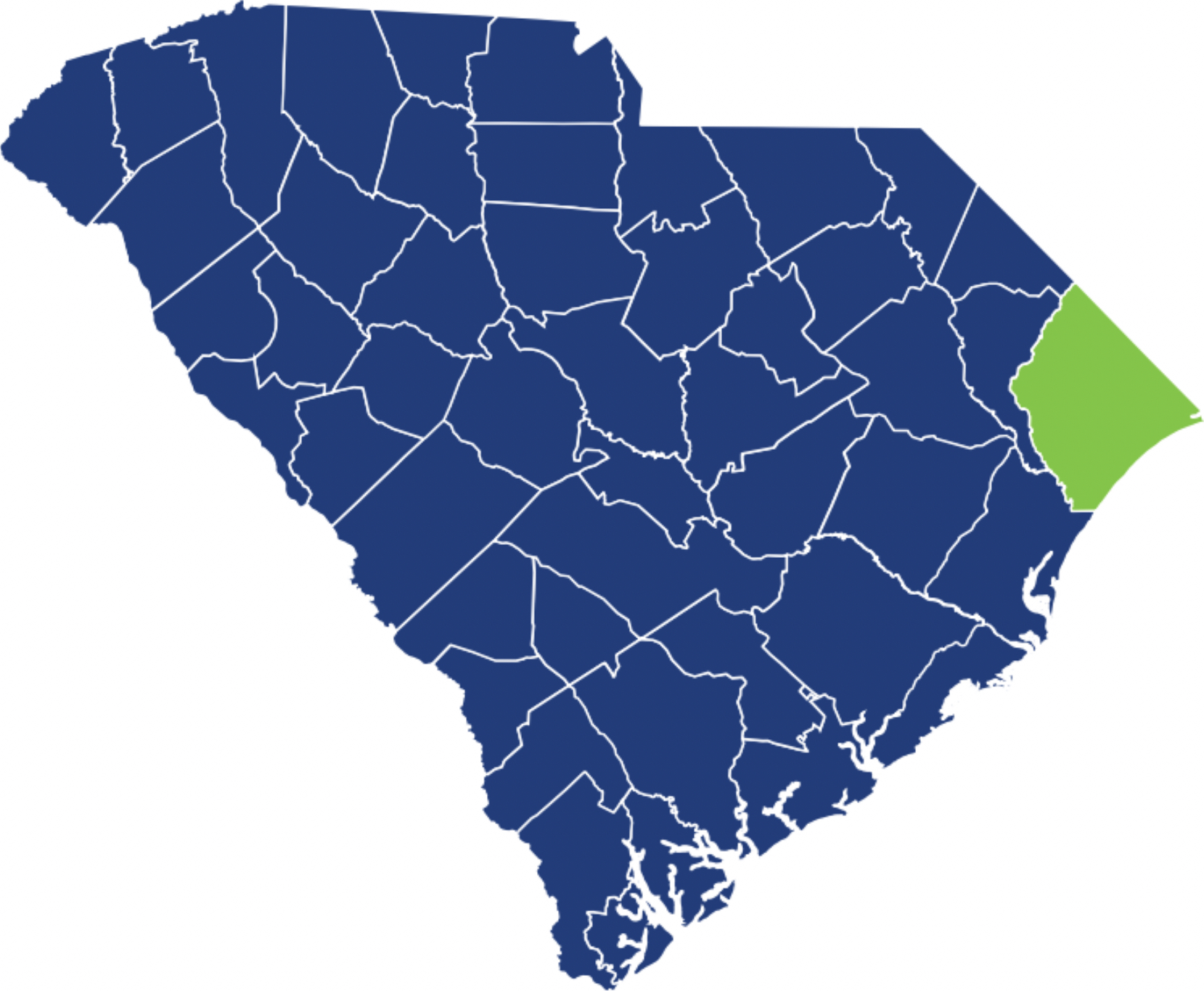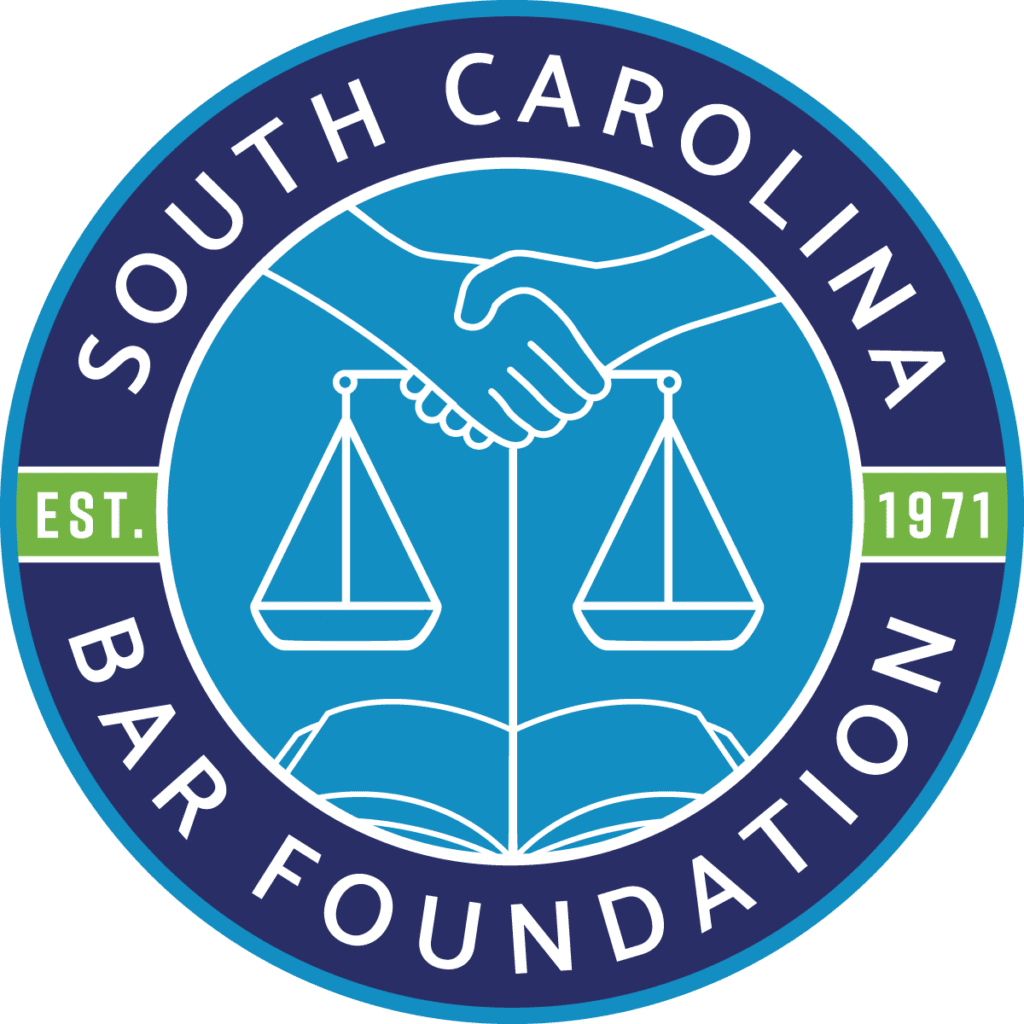Please explore our eligibility requirements and timeline below to learn more about the application process for our next grant cycle.
Grant Applications
Eligibility Requirements
To be considered for grant funding from the South Carolina Bar Foundation, applicants must meet the following eligibility requirements:
-
Be a 501(c)(3) or similar tax-exempt nonprofit.
-
Offer one or more of the following services in South Carolina:
-
Legal services to indigent individuals
-
Law-related education for the public
-
Programs that improve the administration of justice
-
New Applicants
Effective Immediately: new applicants for South Carolina Bar Foundation funding will be required to submit a Letter of Intent to the Foundation’s Executive Director before submitting a grant application.
After the Letter of Intent is received, a phone meeting or in-person meeting will be scheduled to further discuss the proposed project in more detail. The conversation will include the Foundation’s Executive Director and at least one member of the Board of Directors.
If the proposal aligns with the South Carolina Bar Foundation’s missions and priorities, the applicant will be invited to submit a grant application.
“New applicants” means organizations that have never applied for SC Bar Foundation funding, as well as organizations that have previously applied but have not been funded.
Please include the following in your Letter of Intent:
-
The name of your organization and the specific project for which you are seeking funding;
-
Nonprofit status;
-
Mission Statement;
-
A description of how the funding would be used;
-
A dollar amount you are seeking from the SC Bar Foundation;
-
Why the funding cannot be obtained through other funders;
-
A brief history of your organization, including its founding date.
You may submit your Letter of Intent at any time* by emailing it to Olivia Jones at olivia.jones@scbarfoundation.org.
*Please note: to be considered for the upcoming grant cycle, your Letter of Intent must be submitted by December 15 of each year. Letters of Intent received after December 15 will be reviewed for the following year’s grant cycle.
For example:
- if you submit your Letter of Intent by December 15, 2025, you will be considered for the grant application cycle that closes January 31, 2026;
- if you submit it after December 15, 2025, your eligibility will apply to the January 2027 grant cycle.
Annual Grant Cycle Timeline
Application Opens
Application Deadline
Review Process
Notification of Awards
Funding Start Date
Horry County Grant
The Foundation currently administers additional grant funding designated specifically for use within Horry County, South Carolina, made available through a Cy Pres award from a 2021 settlement between Horry County and the City of Myrtle Beach. These funds must support one of the following categories: Civil Legal Aid, Administration of Justice, or Law-Related Education.
Beyond this, the only requirement is that the funding be used within Horry County.

Civil Legal Aid - Factors
To determine whether a program effectively supports civil legal aid, the Foundation considers the following criteria:
-
Provide free legal representation or access to free or low-cost legal representation to the poor or disadvantaged within the State of South Carolina; and
-
Employ a needs test consistent with income eligibility requirements of the federal poverty guidelines, defined annually by the U.S. Department of Health and Human Services. Applicants need not apply this needs test to all clients served by their organization; however, delivery of services funded by the Foundation must be restricted to clients eligible under those poverty guidelines.
Together, these efforts help fulfill our commitment to justice through equitable access to legal support and education for all South Carolinians.
Administration of Justice - Factors
Programs or initiatives are evaluated for their contribution to the administration of justice using the following key considerations:
- Provide legal services to the poor through innovative or cost-effective means; or
- Provide civil legal aid either to underserved groups, such as the elderly or the disabled, or in an area of representation (whether substantive or geographical) that cannot be or is not effectively served by other qualified legal aid providers; or
- Provide legal assistance, informational advocacy, or litigation support to qualified legal aid providers; or
- Remove barriers to accessing our legal system; or
- Promote the improvement of the administration of justice or our legal system.
By meeting these standards, programs reinforce our broader mission of ensuring legal access and upholding justice across the state.


